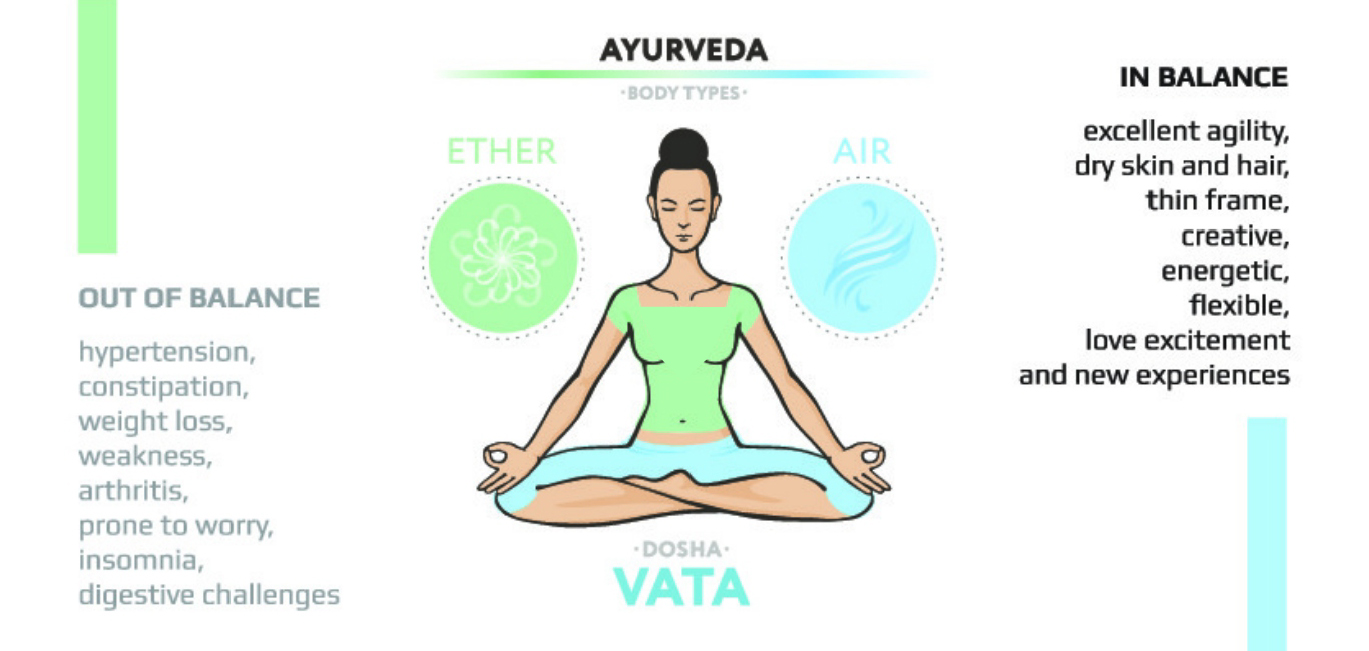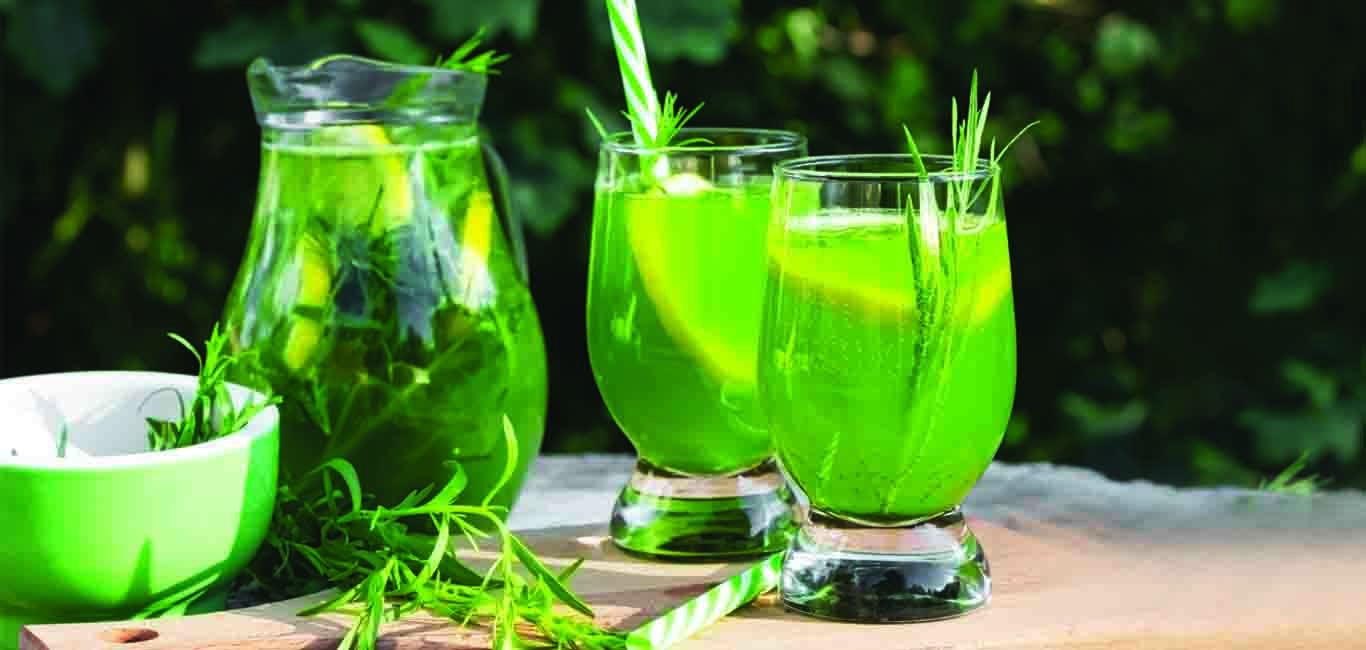
Just as all individuals have unique fingerprints and DNA patterns, they also have distinct energy compositions. This energy pattern is known as dosha.
The elements come together in unique ratios for everyone through the vata (air and ether), pitta (fire and water) and kapha (earth and water) elements.
The doshas determine physical and structural characteristics, metabolic tendencies, personality traits, and disease susceptibility, says Dr Aishwarya Ramachandran, former consulting physician at Shathayu Ayurveda, Bengaluru.
In our most healthy state, we are a combination of two or more doshas. Diet, weather, relationships, and stress are all factors that can work to imbalance one’s constitution. Understanding our bodily makeup makes it easy to eliminate or add various lifestyle choices and diets that may have altered our overall health, adds Dr Ramachandran.
Also read: What to know about vata traits and personality
What does the pitta body type mean? Read on to know more
People with kapha traits have big and study builds and like to walk and do things slowly. They tend to have a calm personality. Kapha individuals are vulnerable to weight gain, sometimes even with a regular diet because of slower metabolism. They do not feel hungry often but can eat large portions in a single sitting. People with a dominant kapha dosha are diplomatic in nature, caring, and thoughtful. They have thick, dark and shiny hair with oily and radiant skin.
More about kapha
Kapha (water energy) combines two elements, earth and water. Ayurvedic practitioners say that the kapha element shapes the structure of the body’s bones and muscles. It also helps to lubricate the joints, bring stability in the body, moisturise the skin and develop and maintain immunity.
“Despite their tendency to be lazy, the kapha persons do their best to concentrate on a non-sedentary lifestyle keeping a strict routine that keeps them going. As they put the needs of others above their own, they often have difficulties with self-care,” explains Dr Ramachandran.
Here are some other traits of a kapha person
- Caring and faithful nature
- Good long-term memory
- Admires dance and music
- Have an inherent sense of taste and smell
- Respectful, patient, and trustworthy nature
- Ability to recall even small details
- Hardworking
- Naturally deep sleepers
- Neglect exercises
- Aversion to changes
Digestion and metabolism
“A kapha person has a regular appetite with slow digestion. Their metabolism is slow, and they get thirsty after the smallest of physical activities,” says Dr Ramachandran.
Foods to eat, and eat in moderation
People with the kapha trait should follow a regular meal with portion control. Meals should be predominantly warm. They can add sweet, salty, and sour foods only in moderation. Kapha personalities should aim for early dinner (7pm).
| Categories | Foods to eat | Foods to consume in moderation |
| Meat types | Shrimp, chicken, egg, freshwater fish | Red meat, saltwater fish, and sea foods |
| Vegetables | Bitter gourd, broccoli, cabbage, cauliflower, capsicum, chilli, bell pepper, corn, eggplant, garlic, ginger, green leafy vegetables, okra, onion, radish, pepper, turnip, wheatgrass, cooked tomato, and carrot | Pumpkin, sweet potato, potato, zucchini, olives, avocado, cucumber |
| Fruits | Apple, orange, lemon, lime, berries, cherry, mango, persimmons, garcinia | Grapes, grapefruit, banana, pineapple, musk melon, watermelon, fig, papaya, plum, kiwi, fig, coconut |
| Grains | Millet, corn, barley, buckwheat, ragi, muesli, quinoa, crackers | Oats, rice, wheat |
| Milk products | Goat milk, buttermilk, cottage cheese from skimmed milk, fresh yoghurt | Butter, cheese, cow milk, curd, ice cream |
| oils | Ghee, corn oil, almond oil, flax seed oil | Coconut oil, sesame oil, olive oil, walnut oil |
When kapha is not in balance
Consuming frozen, uncooked, and heavy meals, not exercising daily, consuming foods high in oil and refined sugar, sugarcane, and sweet curd, and being exposed to cold weather are some of the causes of aggravated kapha.
A few symptoms observed when kapha is not in balance are:
- Being overweight or obese
- Gastrointestinal problems
- Elevated blood pressure
- Varicose vein (enlarged due to overfilled blood)
- Fatty liver and fat build-up in the arteries
- Cold, cough or runny nose
- Elevated cholesterol and gallstone
- Pre-diabetes and diabetes
- Sinus congestion and tonsil infections
- Lack of energy
How to balance kapha naturally
Dr Ramachandran suggests some tips to balance disturbed kapha.
- Follow a regular exercise routine such as jogging, hiking, biking, yoga, sun salutation, HIIT, martial arts, or other forms of exercise, for a minimum of five times per week. Individuals with a kapha trait should try to keep their bodies warm and dry.
- Daily abhyanga, or ayurvedic self-massage with warm sesame oil, dry brushing or powder massage with herbal powders, invigorating music, and aromatherapy are advised to maintain the kapha
- Being strict about their exercise routine and self-care, and eating sweet, cold, salty and excessively fried foods in moderation can keep common illnesses at bay among those with kapha dosha.
- Being spontaneous and trying new things can also help a kapha person to be mentally strong.

















